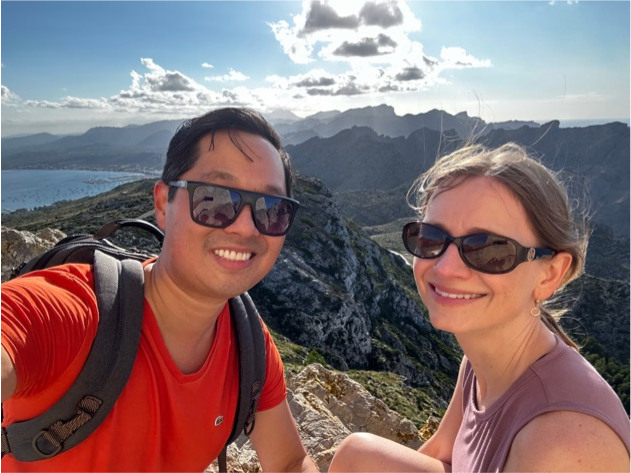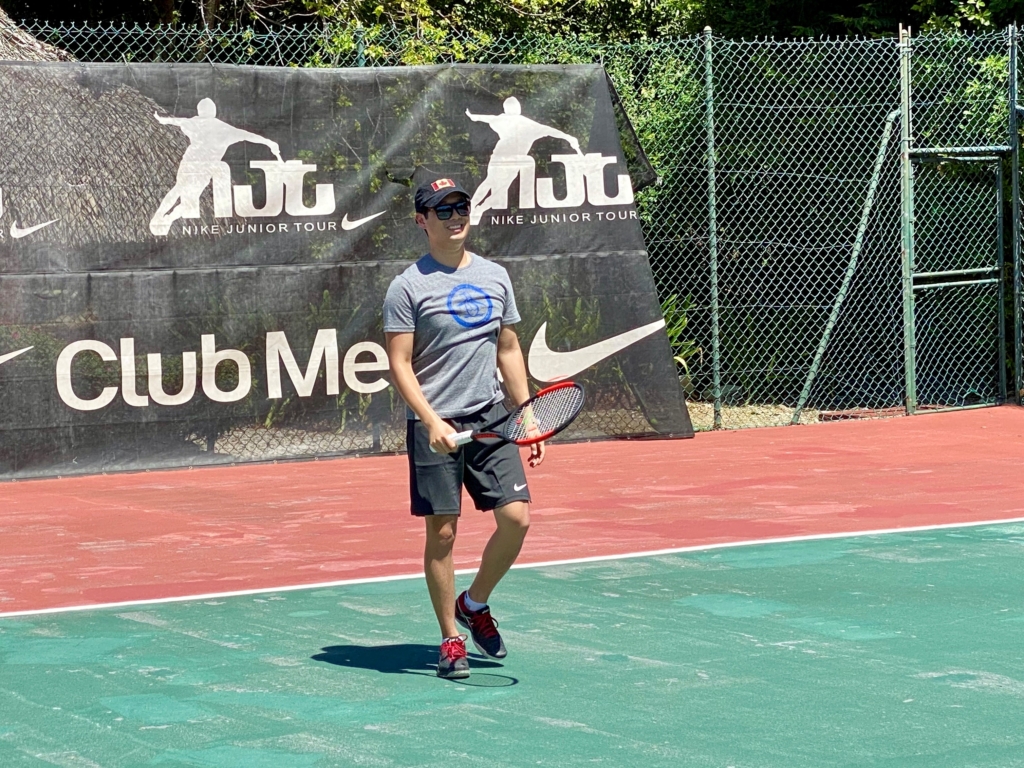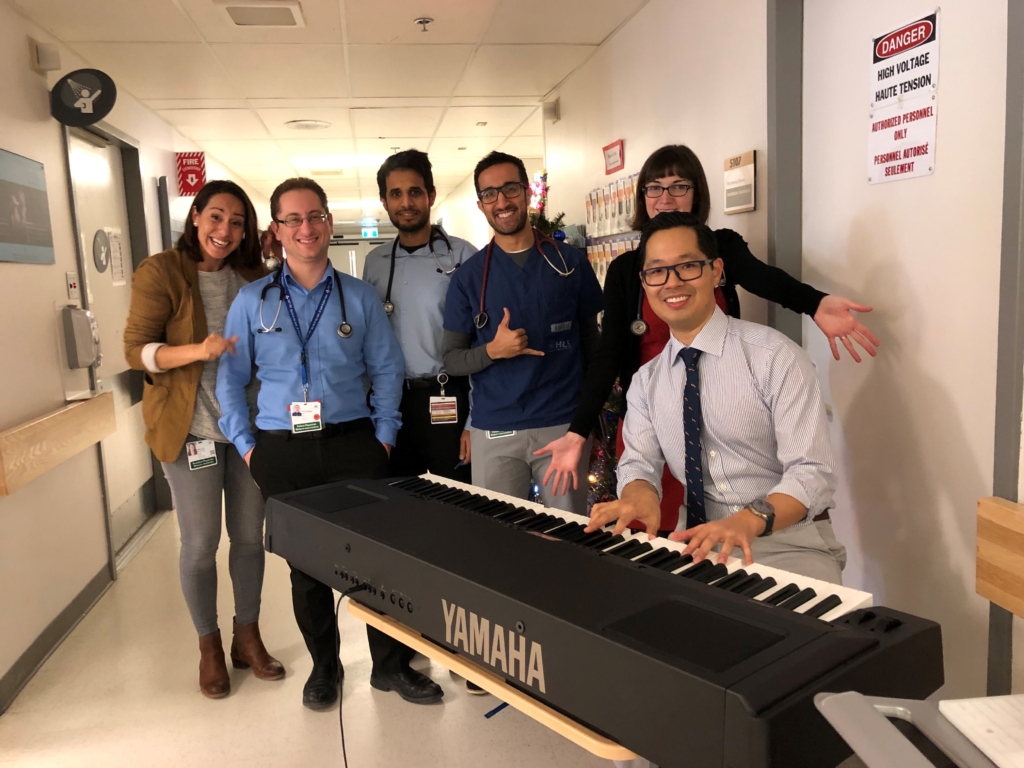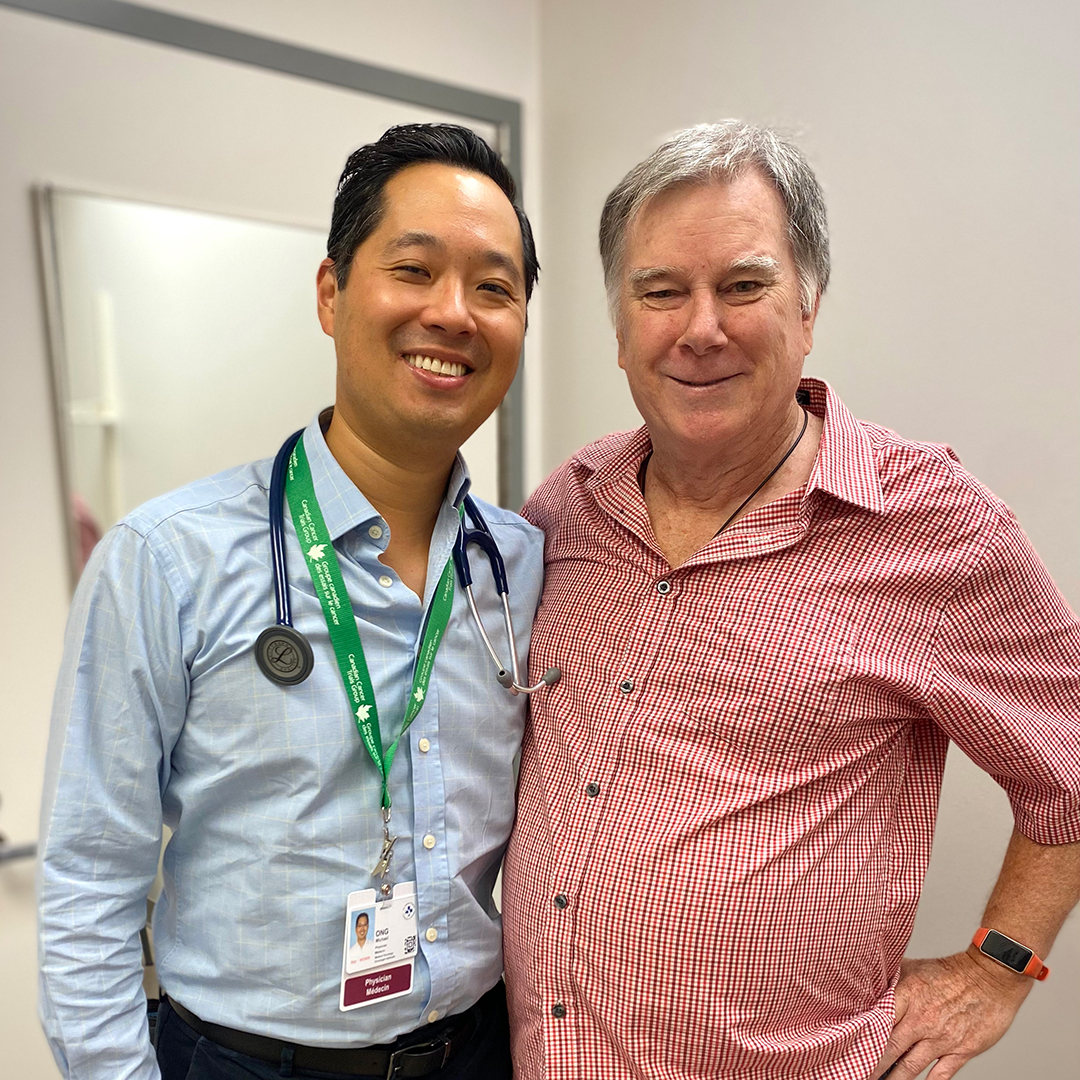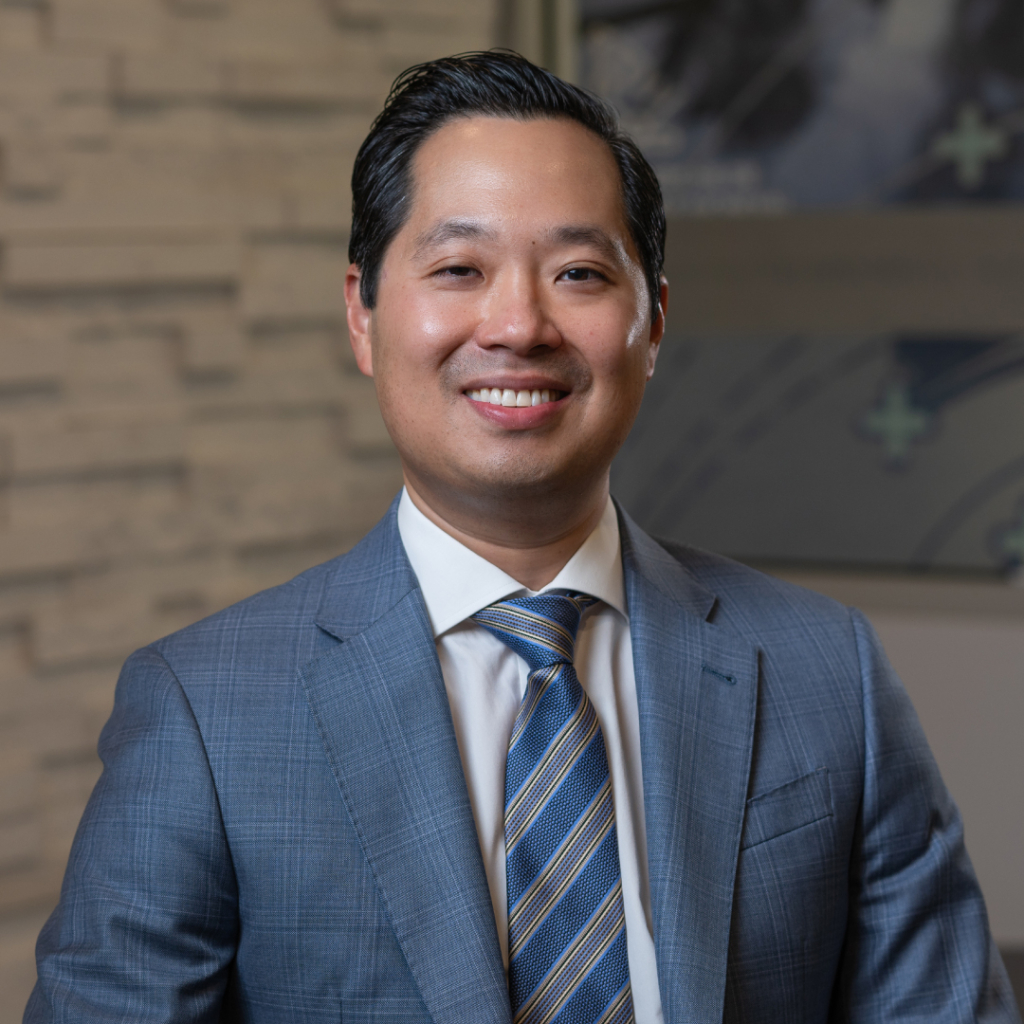
Fighting the good fight on the lab bench or at the patient bedside: Dr. Michael Ong is an oncologist and associate professor at The Ottawa Hospital who has spent his career discovering new therapies against cancer by enrolling patients in clinical trials.
His research and practice have focussed on prostate cancer, bladder cancer, and melanoma, and over the last decade he has been the lead investigator in Ottawa for countless clinical trials. He currently leads several national and international clinical trials that are poised to change how we treat cancer, including how we use cancer immunotherapy, where a patient’s own immune system is harnessed to attack cancer. Dr. Ong’s research is changing the way we deliver care at The Ottawa Hospital, and far beyond.
Read on to learn what piqued Dr. Ong’s early interest in science and why immunotherapy works a little differently with prostate cancer than with some other cancers.
Q: Can you tell us a bit about your early years?
A: I was born and raised in London, Ontario, which was a great place to grow up — my dad was a local dentist, and my mom managed his office. I spent a good deal of my younger years playing and competing in classical piano festivals. I was also on the tennis and badminton teams at school, and I liked being a part of student council.
I had a subscription to Scientific American, and it was cool because you were exploring the world and universe. My dad was into science fiction, and it was a family tradition to watch Star Trek every week with him and my brother — it was our boys time.
In high school, while everyone was finding their way, I knew I would end up in science — but the field is just huge. Back then, we didn’t have the internet, and it was hard to know what career paths were even available.
Q: When did you realize you wanted to become a doctor, and specifically an oncologist?
A: Medicine opens up many doors, and I think that was the initial attraction to the field. I had to decide if I wanted to stay in London and assume my father’s dental practice, however, I knew the journey through medicine would open my mind through varied experiences and adventures — and it has absolutely lived up to this promise.
“The breadth of people and patients I have encountered during my career — in situations both stressful and miraculous — has exceeded the drama and delivery of any TV show.”
— Dr. Michael Ong
My training in medicine has taken me to nearly every province in Canada and across Europe. The breadth of people and patients I have encountered during my career — in situations both stressful and miraculous — has exceeded the drama and delivery of any TV show.
In my undergrad, I studied biochemistry at Western University, which probably laid the foundation for what I currently do in medical oncology. But, it wasn’t until I was in an internal medicine residency searching for my raison d’être when I had an unexpected selective rotation in oncology. I found my calling. There were so many things that excited me about the field — the compassionate, highly specialized team; the multidisciplinarity; the scientific, evidence-based approach; the incredible focus on research and improving outcomes; the “best of the best” science that has resulted from billions of dollars of research.
Now, 15 years after that decision to join the field, I have seen complete revolutions in how we treat cancer.
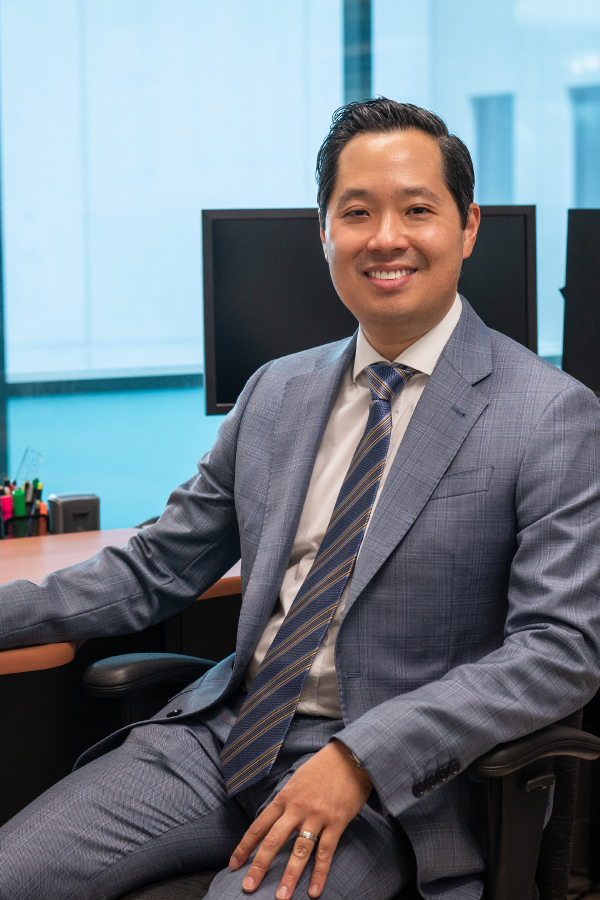
Q: What drew you to the research side of oncology?
A: I had a great mentor, Dr. Eric Winquist, who had seen something in me, and he encouraged me to apply to a training program in writing and conducting cancer clinical trials in Flims, Switzerland, put out by the American Academy of Cancer Research. As part of this program, you had to come with a clinical trial proposal, refine your concepts, make it feasible, and write an entire 100-page clinical trial protocol that you bring back to your institution to run the study. My application for the trial was accepted, and whoosh, I was off to Switzerland that summer!
There, leading my training group in the middle of the Swiss Alps, was Professor Johann de Bono, arguably one of the most influential, cutting-edge prostate-cancer oncologists in the world. At the end of the course, he said, “Mike, what are your plans? I would like you to come work for me at The Royal Marsden Hospital in London, U.K.”
I spent two years in London at their Institute of Cancer Research developing new cancer treatments. It was mind blowing to see what was happening at these top institutions, to see how you could bring science from the bench straight to the bedside. I learned how to design clinical trials that — once published and presented — could change clinical practice in the whole world.
Q: Can you describe the research you’re currently working on?
A: I am a cancer clinical trialist. While it is a huge effort on the part of patients, staff, and researchers to enrol and participate in clinical trials, it is ultimately one of the best ways that we end up meaningfully changing patient care. I focus on providing access to clinical trials that test new immune and targeted therapies for patients with prostate cancer, bladder cancer, and melanoma.
For prostate cancer, I have been trying to develop personalized treatments that are not simply taking the “one-size fits all” approach. I am leading an international study across the USA and Canada to show that the best way to add chemotherapy on top of hormone therapies is to look at a certain antigen to look for early evidence of resistance to treatment. Our goal in this clinical trial is to prove that when we customize the choice of chemotherapy, we improve how long and well patients live with cancer.
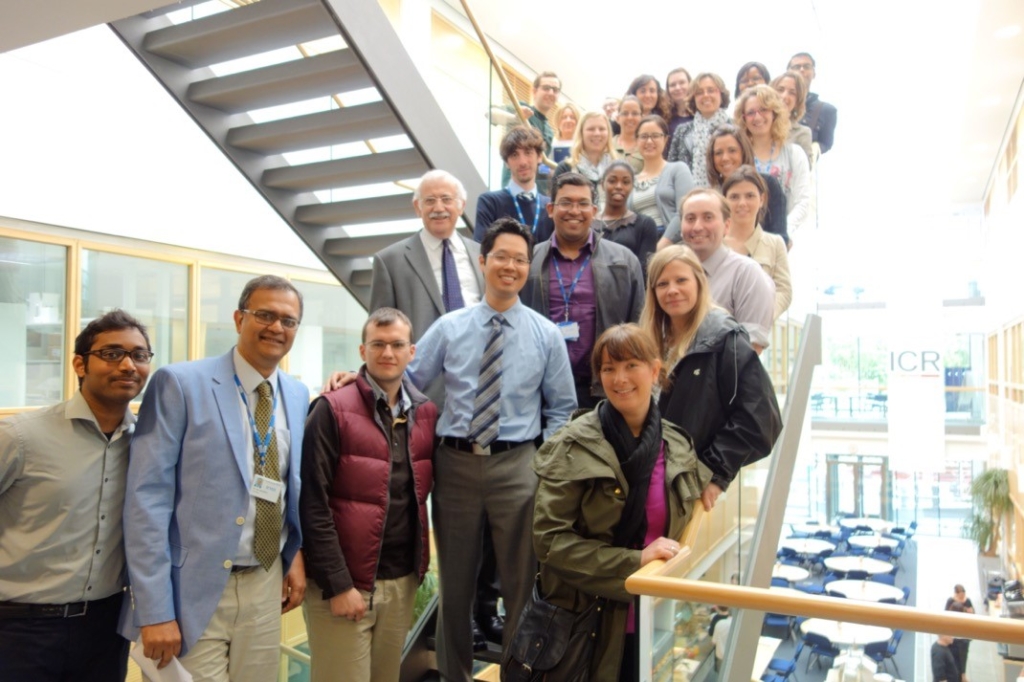
I am also the co-chair of a national study that we have completed in Canada where we have tried to personalize the treatment of men with prostate cancer using a blood test called “circulating tumour DNA.” We tested various new cancer treatments based on the results of this blood test and have found that we can effectively choose which patients might benefit from specific treatments, such as cancer immunotherapy.
Q: Why does immunotherapy work better for some types of cancer?
A: The reason immunotherapies work is that some cancers look very ugly to a person’s immune system, and the immune system will naturally see them as foreign and try to attack the cancer. Cancers will then cloak themselves in something called PD-L1, which is like an invisibility cloak to the immune system — it’s a survival instinct for the cancers. Immunotherapies remove that PD-L1 cloak with an IV infusion given to patients, which reveals the cancer again to the immune system, and the results can be incredible.
We’ve struggled to make immunotherapy work in prostate cancer because incidences of this cancer looking ugly to the immune system happen in a low number of cases — probably fewer than 5%. We’ve done a lot of trials, but the majority of patients do not benefit from immunotherapy. But that does not mean we should give up on this approach! What it means is that we should take a personalized approach for patients and do testing to identify that 3–5% of patients who may benefit from immunotherapy. One recent study showed that immunotherapy benefitted 86% of prostate cancer patients who tested positive for something called “mismatch repair deficiency,” which I test for in my practice — but it’s not standard across Canada to test for this yet.
Q: You worked on Larry Trickey’s prostate cancer case. What made his situation unique?
A: Larry’s case is the perfect example of how important it is to find these cases of mismatch repair deficiency. Larry had participated in that clinical trial where we took a blood sample and tested his cancer DNA for evidence of mismatch repair deficiency. His blood test report showed that he was possibly sensitive to immunotherapy. He enrolled in the clinical trial, which uses two cancer immunotherapies. Almost the moment he started treatment, his cancer was attacked by his immune system, and he has achieved a complete remission from his cancer so far.
It’s important not to treat prostate cancer as one big basket. Hormone therapy is very important, chemotherapy is important for some, and there’s also radiation, immunotherapies, and targeted therapies such as PARP inhibitors that only benefit those with specific altered genes such as BRCA2. We’re making huge attempts to personalize treatment for patients.
Q: Why did you choose to work at The Ottawa Hospital?
A: My wife (also a physician) and I both chose to come back to Ottawa, and at the time our first son was one year old. We wanted to be at a centre providing top-tier care, and for me that meant a centre that had the capability to do cancer drug development and phase I-III cancer clinical trial research.
We also wanted to balance our life in a city that could provide everything to help our growing family to thrive. Our second child was born about two years into practice in Ottawa.
I would also say that I have the privilege with working with some of the most incredible colleagues in the Division of Medical Oncology. You would be hard pressed to find a group of more talented, dedicated and compassionate individuals.
Q: Where would we find you when you’re not at work?
A: I’ve been trying to develop as a jazz piano artist. I’m a classically trained pianist, but branching out into jazz is one of the hardest things I’ve ever done. I liken it to learning a completely different language.
I also play tennis and squash regularly. I’m out a lot with my two boys; both are in competitive soccer and tennis. My wife is a big skier, so we’re out on the slopes every weekend in the winter.
I love travelling — this summer I was in Ireland, Quebec, New York, Barcelona, Majorca, Victoria, and Whistler — and I’m a big photographer, so I document my travels!
Fun fact, in my early years, I also spent some effort learning how to salsa dance, and my friends and I would travel around to conferences to do this. The first time I met my wife (we’re talking around 1998!) my friends and I took her out to a salsa club, which I think won me a few extra points.
